Unlocking CX Automation with Artificial Intelligence
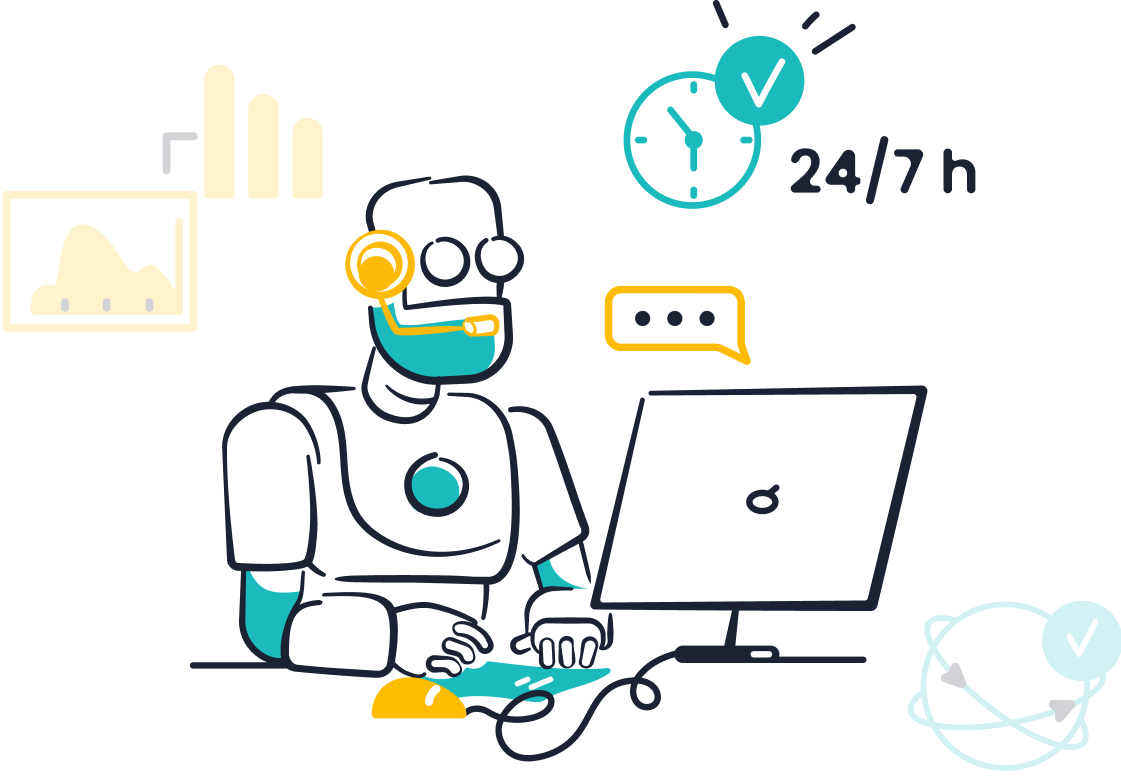
AI transforms cx automation for businesses in every industry. Companies now automate customer experience with advanced AI tools, reaching new levels of efficiency and satisfaction. Sobot leads in customer experience automation, serving over 10,000 brands and handling millions of interactions daily. The latest statistics show rapid growth in automation:
| Statistic | Value | Source |
|---|---|---|
| AI-powered customer interactions by 2025 | 95% | Gartner |
| Chatbot adoption in customer service | 80% by 2025 | Gartner |
| Companies using AI to improve CX | 90% | Technology Review |
Sobot AI and Sobot call center solutions help organizations deliver automated customer experience and seamless omnichannel support. Many businesses ask what is cx automation and seek ways to boost cx with automation. With cx automation, companies provide 24/7 support, reduce costs, and personalize service. Sobot AI stands out by integrating automation across every channel, helping brands achieve higher customer satisfaction and stronger ROI.
What Is CX Automation
Definition and Scope
Many businesses ask what is cx automation when they want to improve customer service. Customer experience automation uses technology to streamline customer interactions, reduce human errors, and analyze feedback data. According to the Probe CX blog, customer experience automation helps companies understand customer needs and improve the overall journey by removing guesswork from feedback analysis. Companies use automation to map customer journeys, monitor engagement, and manage communications across channels.
Customer experience automation includes several main components:
- AI-powered chatbots and virtual assistants that answer questions and solve problems.
- Omnichannel experience management, which connects customers on chat, email, voice, and social media.
- Customer journey mapping to track and trigger personalized messages.
- Data analytics to find patterns and improve engagement.
- Integration with business systems like CRM and ERP for unified service.
Automation in customer experience management covers customer service, marketing, sales, IT, and operations. Sobot, for example, offers AI chatbots and omnichannel support, helping brands deliver consistent service and manage millions of interactions daily. Automation enables companies to provide 24/7 support and maintain high service quality worldwide.
Why It Matters
CX automation matters because it helps businesses meet rising customer expectations and handle large volumes of inquiries. Companies that use automation see faster response times, fewer errors, and better customer satisfaction. Data from Gorgias shows that customer experience automation can increase customer satisfaction scores by 1% in just 30 days. Automation also boosts support team morale and helps track performance.
Companies like OPPO use Sobot’s AI solutions to manage peak shopping periods, automate repetitive tasks, and improve knowledge base efficiency. OPPO achieved an 83% chatbot resolution rate and a 94% positive feedback rate after implementing Sobot’s automation tools. These results show that automation drives business growth and customer loyalty.
CX automation blends AI with human expertise, allowing businesses to personalize service while staying efficient. Automation helps companies scale support without raising costs and ensures compliance with regulations. As customer experience automation grows, more brands rely on platforms like Sobot to deliver seamless, data-driven service across every touchpoint.
AI in CX Automation
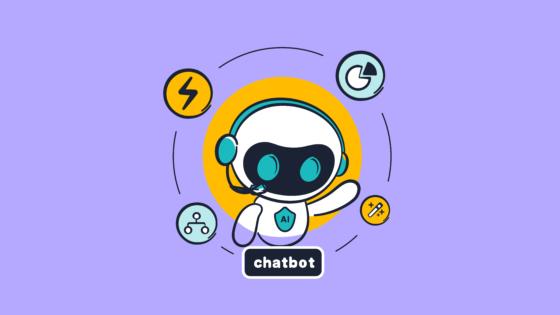
Core Technologies
AI in cx automation uses several advanced technologies to improve customer experience automation. These technologies help businesses deliver faster, smarter, and more personalized service. Companies rely on these tools to handle large volumes of customer interactions and provide support at any time.
- AI-powered chatbots and virtual assistants answer questions and solve problems for customers. These chatbots can handle many conversations at once, reducing the need for large support teams.
- Machine learning (ML) helps chatbots learn from each interaction. Over time, ML improves the accuracy of responses and makes recommendations more helpful.
- Natural language processing (NLP) allows chatbots to understand human language. NLP helps chatbots interpret context, detect sentiment, and respond in a way that feels natural to customers.
- Generative AI creates human-like dialogues. This technology helps chatbots provide context-aware answers and proactive support.
- Predictive analytics uses data to forecast customer needs. With predictive analytics, businesses can offer proactive support and anticipate problems before they happen.
- Omnichannel communication platforms connect chatbots to channels like chat, email, voice, and social media. This integration ensures customers get consistent support wherever they reach out.
- Analytics and reporting tools track customer behavior and campaign performance. These tools help businesses optimize their cx automation strategies.
- Customer data platforms (CDPs) and CRM software organize customer information. These platforms make it easier to personalize service and streamline sales, marketing, and support.
- Automated workflows and AI copilots support human agents. They provide real-time recommendations and help agents resolve issues faster.
AI-powered chatbots and automation tools now provide 24/7 support, reduce response times, and free up human agents for complex tasks. For example, in retail, AI-driven customer experience tools recommend products based on browsing history. In banking, AI detects fraud and helps with loan assessments. In healthcare, virtual assistants schedule appointments and send reminders.
Natural language processing, machine learning, and predictive analytics work together to make cx automation more effective. NLP lets chatbots understand and respond to customer questions in a human-like way. Machine learning helps chatbots get better over time by learning from each conversation. Predictive analytics uses data to anticipate what customers need, which leads to proactive support and higher satisfaction.
AI automation also helps businesses deliver hyper-personalized experiences. By analyzing customer data, AI can tailor messages, offers, and recommendations to each person. This level of personalization increases engagement and loyalty.
Cloud-based cx automation platforms make it easy for companies to scale their support. These platforms allow businesses to manage customer interactions from anywhere, ensuring high availability and reliability.
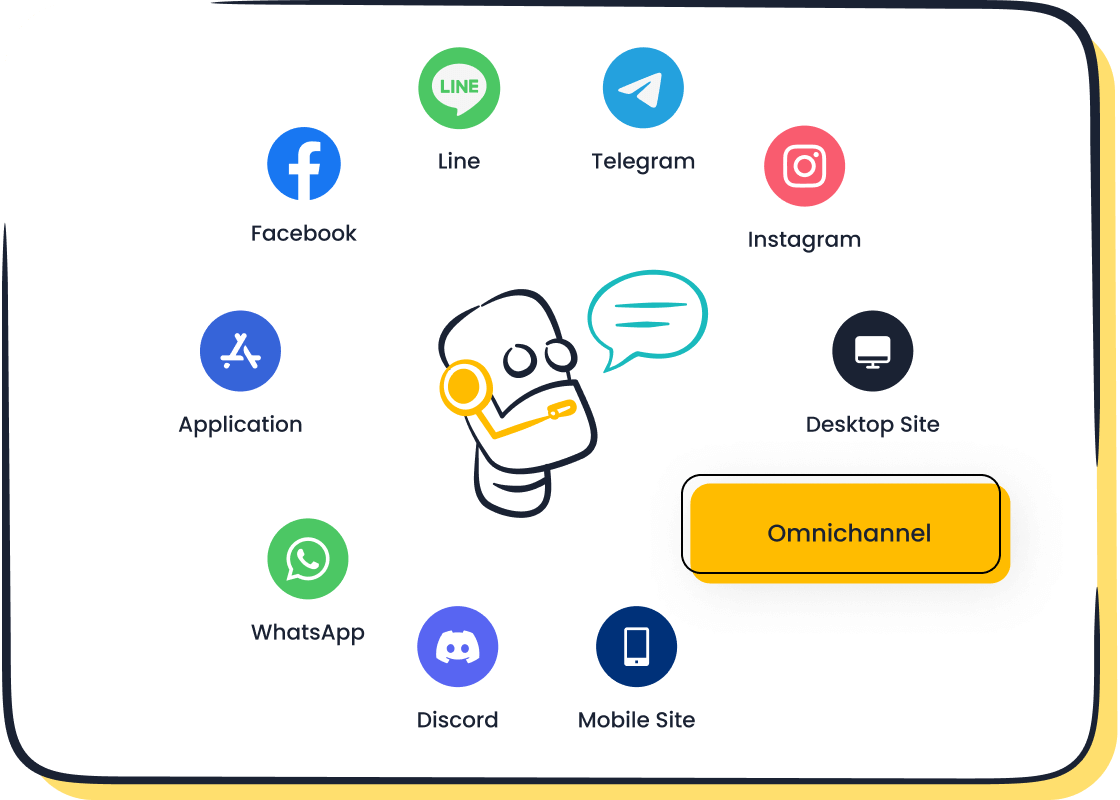
Sobot Chatbot Overview
Sobot stands out as a leader in ai-powered automation for customer experience. The Sobot chatbot uses advanced AI to automate customer interactions and support teams across industries. Sobot’s platform combines chatbots, live chat, voice support, ticketing, and messaging into one seamless solution.
Sobot’s ai-powered chatbots provide instant, personalized support to customers. These chatbots operate 24/7 and handle routine questions, freeing human agents to focus on complex issues. Sobot chatbots use machine learning and NLP to understand customer intent, detect emotions, and respond with empathy. This approach ensures that every interaction feels natural and helpful.
Key features of the Sobot chatbot include:
- Omnichannel support: Sobot chatbots connect with customers on chat, email, voice, WhatsApp, and social media. This integration creates a unified customer experience across all channels.
- Multilingual capabilities: Sobot chatbots interact with customers in their preferred language, making support accessible to a global audience.
- No-code setup: Businesses can design and deploy Sobot chatbots using a simple point-and-click interface. No coding skills are required.
- Knowledge base integration: Sobot chatbots use information from articles, PDFs, and other sources to provide accurate answers.
- Real-time analytics: Sobot offers detailed reports on chatbot performance, customer sentiment, and engagement. These insights help businesses optimize their cx automation strategies.
- Automated workflows: Sobot chatbots trigger actions based on customer behavior, sentiment, and intent. This automation speeds up issue resolution and improves customer satisfaction.
- Ethical AI: Sobot designs its chatbots to be transparent and empathetic. The platform monitors AI performance to ensure fair and ethical interactions.
Sobot’s ai chatbots have helped companies like OPPO achieve an 83% chatbot resolution rate and a 94% positive feedback rate. OPPO also saw a 57% increase in repurchase rate after using Sobot’s customer experience automation tools. These results show the power of ai-driven customer experience and automation in driving business growth.
Sobot’s cloud-based cx automation platform supports over 10,000 brands worldwide. The system handles millions of online communications and phone calls every day, with a system stability rate of 99.99%. Sobot’s solutions help businesses reduce costs, increase efficiency, and deliver consistent, high-quality service.
Sobot’s ai-powered chatbots stand out because they combine advanced analytics, machine learning, and omnichannel support. The platform enables businesses to deliver hyper-personalized experiences, automate repetitive tasks, and provide proactive support. Sobot’s focus on ethical AI and transparency builds trust with customers and ensures long-term success.
For businesses looking to improve cx automation, Sobot offers a reliable, scalable, and user-friendly solution. The platform’s cloud-based cx automation tools make it easy to manage customer interactions, optimize workflows, and boost customer satisfaction.
Customer Experience Automation Benefits
24/7 Support
AI-powered cx automation gives businesses the ability to provide customer support at any time of day. Customers expect answers quickly, even outside normal business hours. With automation, companies can automate customer service and deliver instant responses. Sobot’s AI chatbots work around the clock, handling routine questions and offering personalized interactions. This approach leads to faster response times and higher customer satisfaction. Research shows that 24/7 AI chatbots can provide instant answers and achieve up to 83% automation handling rates. Companies see a 10x increase in response speed and a significant boost in customer engagement. Customers feel valued when they receive help right away, which increases loyalty and retention.
| Benefit Category | Measurable Improvement | Example/Details |
|---|---|---|
| Response Time | Faster response times | 24/7 AI chatbots provide instant answers |
| First-Contact Resolution | Higher rates achieved | Improved service quality |
| Customer Satisfaction | Increased satisfaction and loyalty | Result of faster, personalized service |
| Automation Handling Rate | Up to 83% of inquiries handled without human intervention | Telecommunications provider case study |
Personalization
Personalization stands at the heart of cx automation. AI uses data-driven personalization to analyze customer behavior and create hyper personalized customer experience. Sobot’s platform delivers personalized recommendations and personalized communications across every channel. For example, AI can suggest products based on browsing history or send personalized offers through loyalty programs. Companies like Amazon and Starbucks use AI to boost engagement and retention with personalized interactions. Research shows that AI-driven personalization can increase customer engagement by up to 30% and reduce churn by 35%. Hyper-personalization ensures each customer receives a unique, relevant experience. AI also detects customer sentiment, allowing for empathetic and emotionally intelligent responses. This level of engagement builds trust and encourages repeat business.
- AI-driven personalization leads to up to 35% higher redemption rates.
- 71% of consumers are more likely to recommend brands offering personalized experiences.
- Companies using AI personalization report 35% lower churn rates.
Cost Savings
Automation helps businesses save money by reducing the need for large support teams. AI can automate customer service and handle up to 80% of routine inquiries, freeing agents to focus on complex issues. Sobot’s cx automation tools cut operational costs and improve customer support efficiency. Companies report up to 30% lower operational costs and up to 60% reduction in cost-per-interaction. Training expenses also drop by 40% because AI systems require less ongoing training. Increased efficiency and faster resolution times lead to higher profitability.
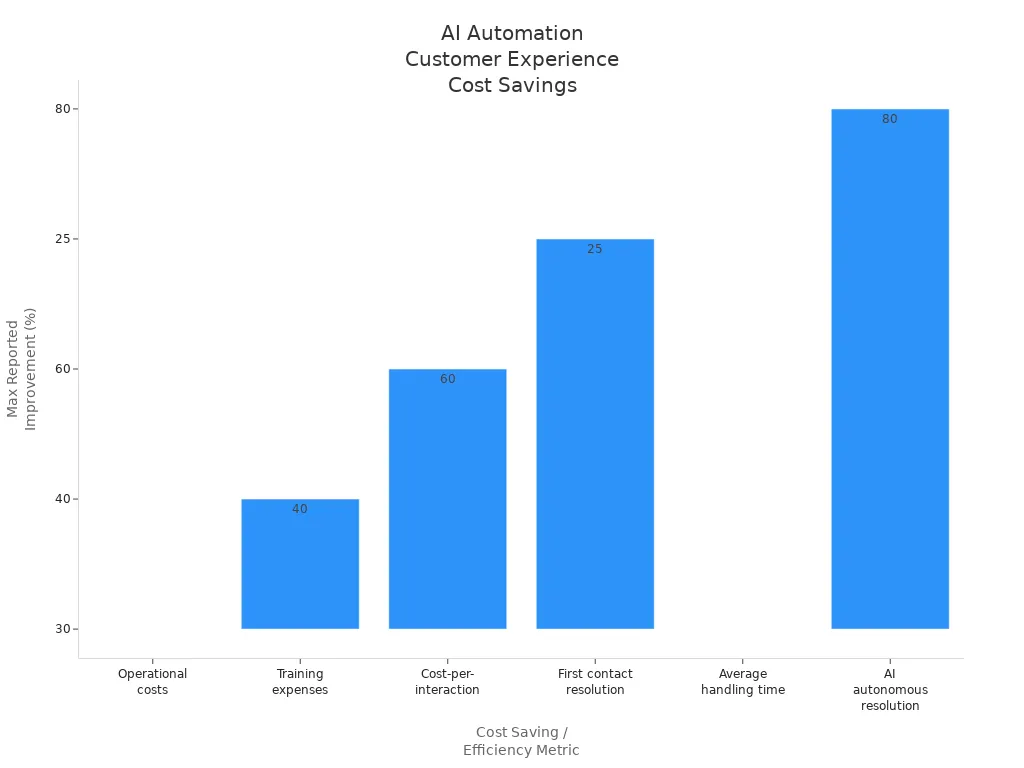
Automation not only reduces costs but also improves first contact resolution and average handling time. Businesses using cx automation see a 25% improvement in first contact resolution and a 20% to 30% reduction in handling time. These benefits make customer experience automation a smart investment for any company seeking increased efficiency and better customer support efficiency.
CX Automation Use Cases
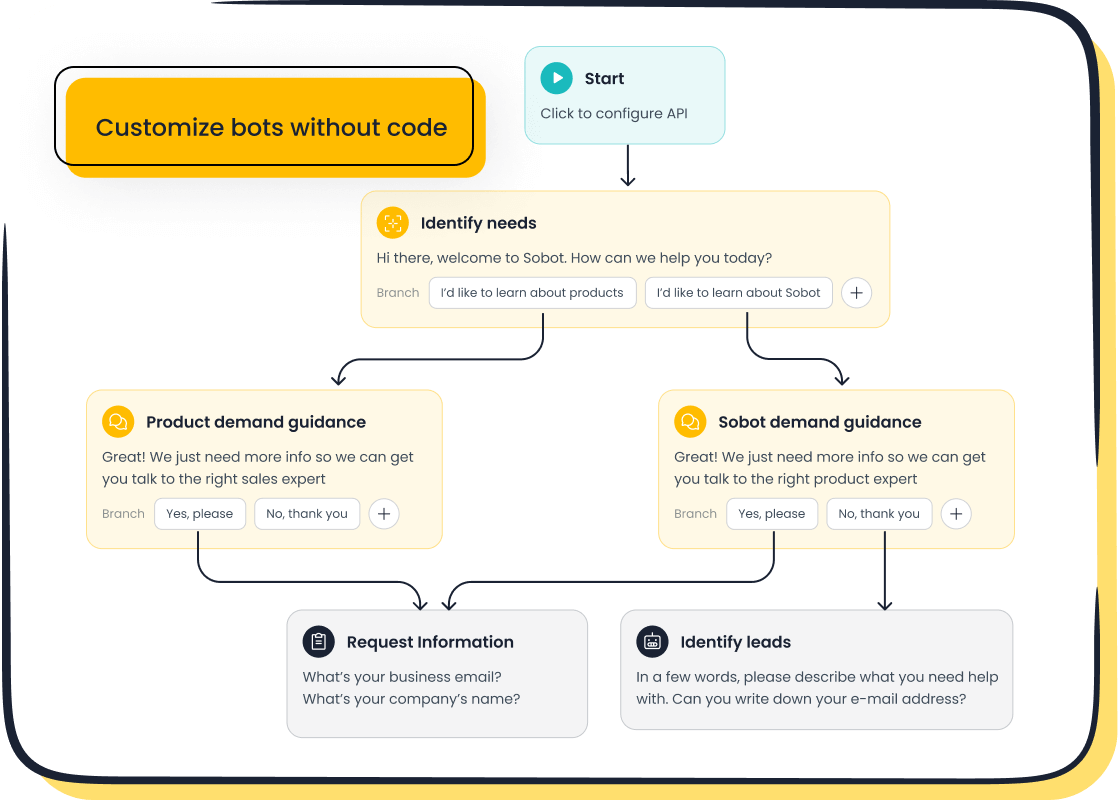
Sobot in Retail and E-Commerce
Retail and e-commerce companies use cx automation to improve customer engagement and streamline operations. Sobot provides ai chatbots and automation tools that help brands deliver 24/7 support, send order updates, and answer questions quickly. These chatbots guide customers through purchases, process returns, and collect feedback. Sobot’s automation also helps manage inventory and logistics, reducing errors and saving time.
Sobot’s ai chatbots boost productivity by up to 400%. Retailers report faster resolution times, with chatbots reducing wait times from hours to minutes. Sobot’s omnichannel integration unifies chat, calls, social media, and apps, making customer interactions seamless.
Common cx automation use cases in retail and e-commerce include:
- Customer support automation: Chatbots provide instant answers and personalized recommendations, improving satisfaction.
- Marketing automation: AI sends targeted emails, product suggestions, and promotional offers to increase engagement.
- Sales automation: Chatbots recommend products and upsell based on customer behavior, boosting conversions.
- Inventory automation: Bots track stock levels and process orders, minimizing errors.
- Returns automation: Chatbots handle return requests and refunds, speeding up the process.
Sobot’s ai-powered automation helps retailers address labor shortages, save billions of hours, and improve customer engagement. Brands like H&M and KFC use ai chatbots to personalize shopping experiences and increase loyalty.
| Aspect | Description |
|---|---|
| Productivity Boost | Sobot’s automation increases productivity by up to 400%. |
| 24/7 Support | AI chatbots provide round-the-clock service, improving customer satisfaction. |
| Personalized Recommendations | AI delivers tailored product suggestions and offers. |
Contact Center Solutions
Contact centers face many challenges before using cx automation. Managers struggle to review calls, and agents spend time on repetitive tasks. Sobot’s automation tools solve these problems by using ai chatbots and intelligent workflows. Chatbots handle routine queries, freeing agents to focus on complex issues. Sobot’s platform uses natural language processing to analyze conversations and provide real-time assistance.
Contact centers benefit from cx automation in several ways:
- Automated call reviews: AI scores every call, improving quality assurance.
- Cross-channel management: Sobot unifies conversations from chat, email, and voice, creating a consistent experience.
- Human-agent collaboration: AI copilots suggest replies and summaries, boosting agent productivity.
- Operational insights: Dashboards help managers optimize service and track engagement.
Sobot’s contact center solutions support multilingual interactions, making it easier for global brands to reach customers. AI-powered automation reduces response times and increases first-contact resolution rates.
| Feature | Benefit |
|---|---|
| Omnichannel Integration | Improves agent efficiency and customer experience. |
| AI Copilot for Agents | Enhances productivity with suggested replies and summaries. |
| Multilingual Support | Expands reach and satisfaction in global markets. |
OPPO Success Story
OPPO, a leader in smart devices, partnered with Sobot to improve cx automation during peak shopping periods. OPPO faced high volumes of customer inquiries and needed efficient solutions. Sobot’s ai chatbots handled repetitive questions, allowing human agents to focus on complex cases. Sobot also optimized OPPO’s knowledge base, reducing maintenance efforts by 90%.
OPPO achieved an 83% chatbot resolution rate and a 94% positive feedback rate. The company saw a 57% increase in repurchase rates after using Sobot’s automation tools. Sobot’s integration unified global customer channels and business systems, improving data accessibility and customer engagement.
OPPO’s success shows how cx automation and ai chatbots drive engagement, satisfaction, and sales. Sobot’s personalized recommendations and automation tools helped OPPO deliver better service and build customer loyalty.
| Client | Chatbot Resolution Rate | Positive Feedback Rate | Repurchase Rate Increase |
|---|---|---|---|
| OPPO | 83% | 94% | 57% |
Implementing AI for CX Automation
Integration Steps
Implementing AI-powered CX automation begins with a clear plan. Companies often start by automating responses to common queries. This step can resolve 40-60% of customer interactions without human help. Sobot’s AI chatbot makes this process simple with a user-friendly interface and seamless integration into existing workflows. Next, businesses add human oversight to monitor AI interactions and handle exceptions. Regular performance analysis helps track metrics like response time, resolution rates, and customer satisfaction. Security and privacy protocols protect customer data and ensure compliance with regulations. Continuous training of the AI system using historical data improves response quality. Companies balance automation with personalization by ensuring smooth transitions between AI and human agents. Integration complexities are addressed by adapting workflows and CRM systems to fit AI solutions.
Real-world examples show that e-commerce companies resolve over 80% of queries with AI chatbots, while telecom firms use AI to triage complex issues for expert attention. Financial institutions combine instant AI responses with human advisors for sensitive tasks, improving service quality.
Best Practices
Successful CX automation projects follow several best practices. Businesses set realistic expectations by communicating AI capabilities and limitations. They evaluate if AI fits the business problem before implementation. AI literacy within the organization improves adoption and trust. Cross-functional teams ensure smooth collaboration among technical and business stakeholders. Companies monitor and test AI solutions when scaling to avoid unexpected behavior.
| Best Practice | Description |
|---|---|
| Clear Objectives | Align AI tools with business goals |
| Data Quality | Clean and standardize data for effective AI performance |
| Employee Engagement | Build cross-functional teams for buy-in and trust |
| Continuous Optimization | Monitor and improve AI performance regularly |
| Partner Support | Work with experienced providers like Sobot for tailored solutions |
Sobot supports organizations with advanced natural language processing, multi-language support, and robust integration options. The platform offers analytics dashboards, proactive engagement features, and comprehensive ticketing systems to manage customer issues efficiently.
Balancing Automation and Human Touch
CX automation excels at handling routine tasks and scaling operations. Human agents provide empathy, understand user nuances, and solve complex problems. Companies map the customer journey to identify where AI improves efficiency and where human interaction is essential. Seamless human-AI handoffs maintain context and avoid customer repetition. Context-aware AI escalates complex issues to human agents with full interaction history. Data quality and security remain top priorities to address customer concerns.
Studies show that 36% of customers prefer waiting to speak to a human rather than using automated self-service. Automation should empower experts, not replace them. Human involvement ensures user-centric services and continuous improvement.
Omnichannel integration breaks down silos and creates unified customer profiles, enabling consistent experiences across all touchpoints. Staff training equips employees to operate in an AI-driven environment and adapt to a customer-centric culture. Sobot’s support services include knowledge base management, customizable reporting, and sentiment analysis to help organizations maintain a balance between automation and human touch, driving better customer engagement and personalization.
Overcoming CX Automation Challenges
Data Privacy
Data privacy stands as a top concern for businesses using cx automation. Many customers worry about how companies collect and use their personal information. Organizations must build trust by making privacy a priority from the start. They can do this by following these steps:
- Integrate privacy by design when building ai systems for cx automation.
- Keep customers informed about how their data is used and give them control over their preferences.
- Use strong data security methods like encryption and access controls.
- Regularly check data for accuracy and avoid collecting more than needed.
- Allow customers to opt out of certain data uses.
Some risks include unauthorized data collection, covert tracking, and misuse of biometric data. Companies must also watch for algorithmic bias, which can lead to unfair treatment. Sobot, for example, uses privacy-focused practices and complies with global standards to protect customer data. Businesses that address privacy concerns in cx automation gain a competitive edge and build long-term trust.
Avoiding Over-Automation
Cx automation brings many benefits, but too much automation can harm customer satisfaction. Companies should automate only routine and repetitive tasks, such as answering common questions or collecting basic information. Complex issues still need human judgment and empathy.
To avoid over-automation, organizations should:
- Review customer support workflows to find the best places for automation.
- Use automation for simple tasks and let human agents handle complex problems.
- Design self-service tools that are easy to use and meet customer needs.
- Communicate with employees about how automation helps them focus on meaningful work.
For example, during a crisis, an airline used automation to handle a 400% increase in customer requests, allowing staff to focus on urgent cases. Sobot’s platform supports this balance by letting businesses combine ai-powered automation with human support, ensuring a smooth customer experience.
Ensuring Compliance
Compliance with laws and regulations is essential in cx automation. Different industries face unique rules. For example, healthcare must follow HIPAA, while e-commerce must meet GDPR and CCPA standards. Companies should:
- Identify all relevant regulations for their industry and region.
- Use ai monitoring tools to check for compliance in real time.
- Train staff on both ai tools and compliance rules.
- Set up technical safeguards like encryption and bias monitoring.
- Work with legal and IT teams to keep up with changing laws.
Sobot helps businesses stay compliant by offering secure, scalable solutions that meet global standards. By focusing on compliance, organizations protect customer trust and avoid legal risks.
Future of AI in CX Automation
Trends
The future of customer experience automation looks bright. Many businesses now invest in new technologies to improve service and efficiency. Several trends shape this future:
- The chatbot market is expected to grow by $1.34 billion by 2025. This growth comes from better natural language processing and machine learning.
- Conversational ai will help reduce contact center labor costs by $80 billion by 2026. Voicebots and chatbots will handle more customer interactions across digital and voice channels.
- A recent study shows that 65% of companies plan to expand ai use in customer support by 2025. This shows growing trust in automation for better service and personalized experiences.
- More organizations invest in ai training for their teams. About 63% now offer structured learning to help staff use automation tools well.
- Ai-backed sentiment analysis is becoming popular. It helps companies understand customer emotions and respond in a caring way.
- New ai tools make it easier to measure customer satisfaction and act on feedback.
These trends show a move toward hyper-personalization, emotional intelligence, and seamless omnichannel automation. Businesses want to use ai to make every customer interaction smarter and more efficient.
| Segment/Region | CAGR (2024-2030) | Market Size 2024 (USD Billion) | Market Size 2030 (USD Billion) |
|---|---|---|---|
| Overall AI Customer Service Market | 25.8% | 12.06 | 47.82 |
| North America | 22.8% | 4.35 | 14.91 |
| Asia Pacific | Highest CAGR | N/A | N/A |
| AI Agents Segment | Highest growth | N/A | 47.1 |
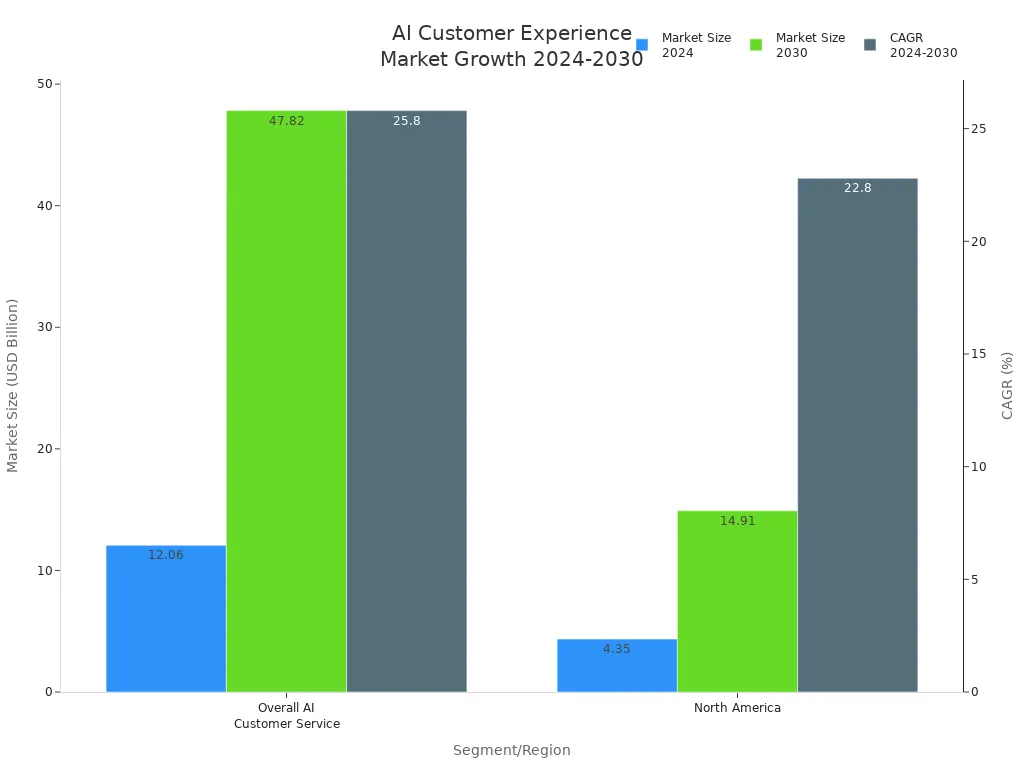
Sobot Innovations
Sobot leads the way in ai-powered customer experience automation. The company follows an “AI-First” strategy with five main pillars:
- Omnichannel AI: Sobot connects conversations across websites, apps, social media, email, phone, and SMS. Customers get a smooth support journey on any channel.
- Scenario-Based AI: Sobot designs automation for specific industries like retail and e-commerce. The system helps with everything from pre-sale questions to post-purchase support.
- Multi-Faceted AI: Sobot supports both customers and agents. Virtual agents help customers, while ai copilots assist agents with replies and summaries. Managers use dashboards to track performance.
- Generative AI: Sobot uses advanced language models to create accurate and human-like responses. This makes conversations feel natural and helpful.
- Secure AI: Sobot protects data with strong security and follows global standards. Regional data centers keep information safe and meet regulations.
Sobot’s innovations help businesses deliver faster, smarter, and more secure automation. These tools make customer interactions more personal and efficient, setting a new standard for the future of automation.
AI transforms customer experience automation by enabling hyper-personalized, proactive, and scalable support across industries. Companies like Amazon and Google use AI chatbots and predictive analytics to improve satisfaction and retention. Sobot’s AI solutions help businesses achieve up to 91% higher retention rates and reduce knowledge base workload by 80-90%.
- Sobot’s omnichannel AI, real-time analytics, and multilingual support drive better customer experience automation.
- Businesses benefit from faster responses, smarter insights, and more efficient service.
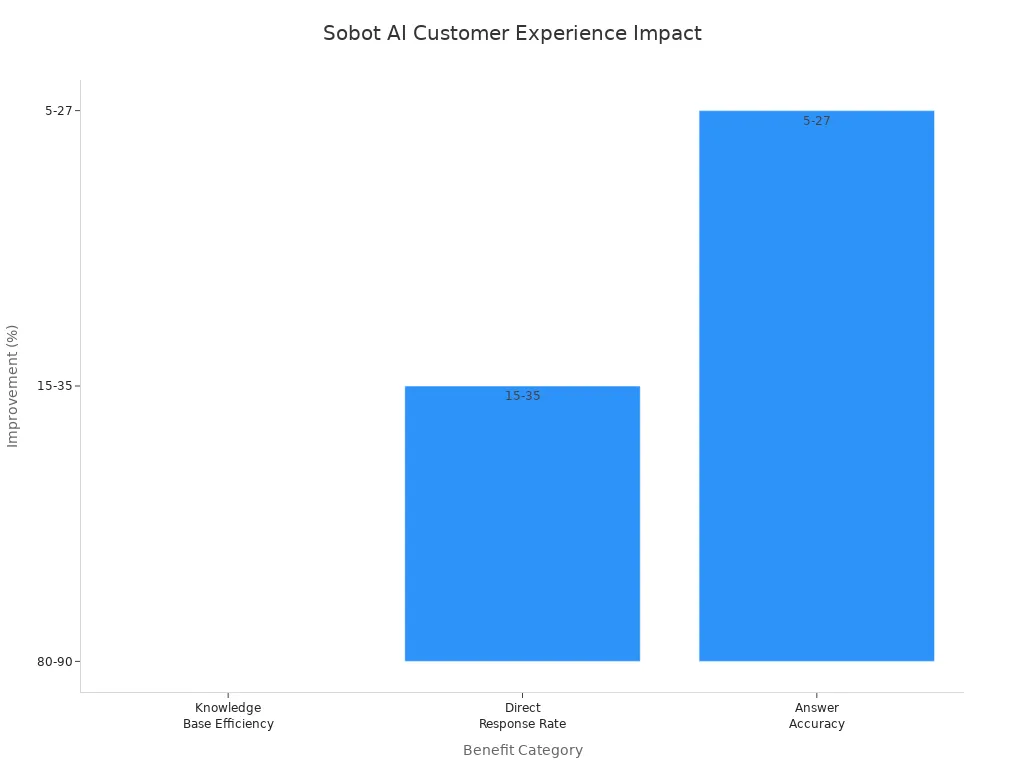
Sobot stands as a trusted partner for companies seeking to elevate customer experience automation. As AI evolves, businesses can expect even more intelligent, empathetic, and seamless customer interactions.
FAQ
What is CX automation and why do businesses need it?
CX automation uses technology to improve customer experience automation. Businesses use it to answer questions faster, reduce costs, and provide 24/7 support. Sobot’s AI chatbot helps companies handle millions of interactions daily. Research shows 90% of companies use automation to boost customer satisfaction (source).
How does Sobot’s AI chatbot improve customer experience automation?
Sobot’s AI chatbot automates customer service by answering routine questions, offering personalized recommendations, and supporting multiple languages. It operates 24/7 and integrates with channels like WhatsApp and SMS. Companies report a 70% increase in productivity and a 50% reduction in support costs (Sobot Chatbot).
Can CX automation work with human agents?
CX automation works best when combined with human agents. Sobot’s platform uses AI to handle simple tasks and lets agents focus on complex issues. This balance improves customer satisfaction and efficiency. OPPO saw an 83% chatbot resolution rate and a 94% positive feedback rate after using Sobot.
Is customer data safe with Sobot’s automation tools?
Sobot protects customer data with encryption and follows global standards like GDPR. The platform uses privacy-by-design principles and offers secure, scalable solutions. Businesses trust Sobot to keep information safe while using customer experience automation for support and engagement (Sobot AI Solution).
What industries benefit most from CX automation?
Retail, e-commerce, financial services, and gaming see big gains from cx automation. Sobot’s AI chatbot helps these industries provide instant support, automate marketing, and improve sales. Companies like OPPO and Samsung use Sobot to manage millions of customer interactions and boost loyalty.
See Also
Ways AI Customer Support Software Enhances Operational Efficiency
Comprehensive Guide To AI Software For Call Centers
Artificial Intelligence Agents Transform Customer Service Experience
